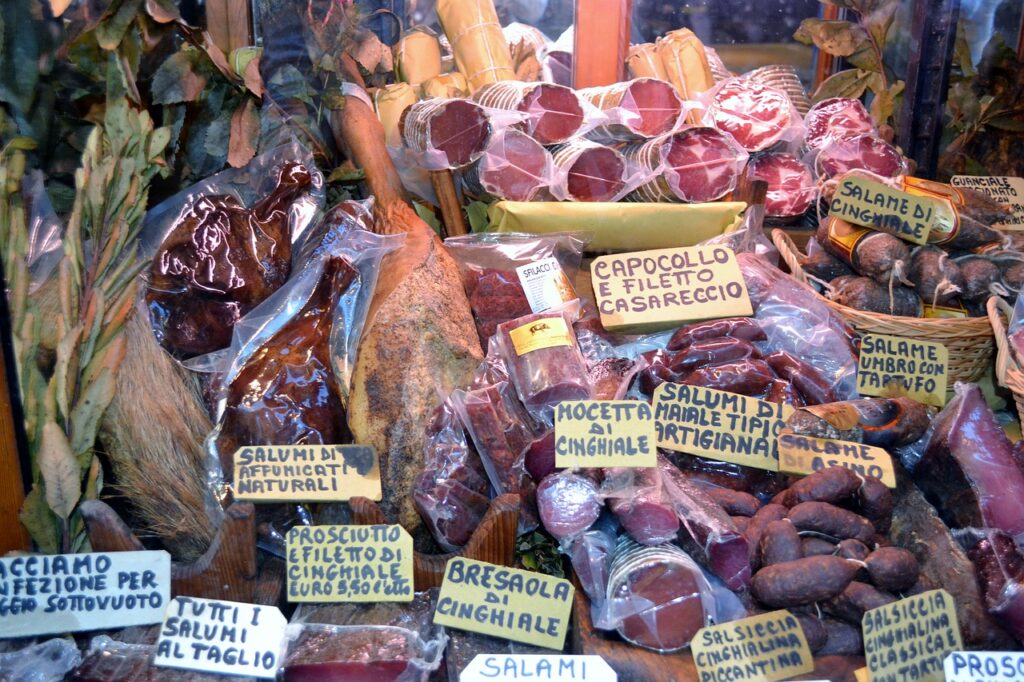Contents
What are SMEs?
‘The category of micro, small and medium-sized enterprises (SMEs – PMI in Italian language) is made up of enterprises which employ fewer than 250 persons and which have an annual turnover not exceeding EUR 50 million, and/or an annual balance sheet total not exceeding EUR 43 million.’ Extract of Article 2 of the annex to Recommendation 2003/361/EC
Business in Italy – an atypical scenario
The Italian economic scenario, renowned for its high concentration of small firms, definitely stands out. As widely reported by expert surveys and EC research business in Italy moves along very distinctive tracks.

Uniqueness of the Italian SMEs context – Italian business culture
Many other countries have a large number of small firms, but business in Italy is interesting because it is among the largest economies in the world and yet we can find 4 distinctive features:
- 98% of Italian companies have fewer than 100 employees.
- 90% of Italian companies have less than 20 employees.
- The Average Size of Italian industrial firms is 7 employees.
- A great number are Family-Owned and managed.
Blooming Italian SMEs – Italian homemade company
The Italian business morphology shows the highest EU percentage of SMEs, Italian PMIs. They play a central role in manufacturing sectors, with many internationally successful micro and small firms. Flourishing Italian firms, albeit small in size, export high-quality exclusive consumer goods (i.e. fashion, textile, design), agroindustrial goods and food products. Italian SMEs, often organized in cluster-like networks (called filiere), are vital pillars of Italian business culture and society.
Leading Italian goods

Business in Italy allows for small and micro firms which produce top-notch goods to become world-famous export leaders. Leading Italian goods exported are fashion products, textiles, leather and footwear, as well as machines and tools such as textile machines, leather and footwear machines, food processing machines, agriculture machinery, packaging machines, wood processing machines, machines for ceramics, machines for metalworking. Italy also excels as exporter of domestic appliances, eyeglasses and compasses.
How Amazon comes into the picture
Over the last years we’ve all seen and heard annoyed discontent and grumbling criticism against Amazon, the “giant who kills small firms” and “buys everyone out”. The main issue for those worried about the future of business in Italy seemed to be the collapse of small retailers (if they can get it online, cheap, they won’t go to the shop).
But the lockdowns consequent to the COVID19 outbreak have changed the economic backdrop dramatically. And complaints have become strong accusations.
Amazon vs Small Businesses: where it all started
When it was founded by Jeff Bezos in 1994 Amazon sold only books. Today it is the world’s largest online marketplace.
And what it is now…
The platform is a marketplace that allows individuals and businesses to sell and display products for sale online. And adopts a low profit margin to approach to capture new market shares. That’s how Amazon became the largest online e-commerce retailer, and one of the most powerful brands in the world.
Italian SMEs and Amazon
So how did Italian SMEs react to Amazon’s expansion? What was the giant’s impact on local economies and SME clusters? As I said above, the “man on the street” has been foreshadowing disaster for local retailers ever since. But, in fact, with the 2019 agreement between ICE Agency (Italian Trade and Investment Agency) and Amazon, 600 Italian SMEs (350 of which non-exporters) were able to access the Amazon Made in Italy platform and reap the benefits of special advertising.
Made in Italy Available Online

Many of the 600 above firms increased their retail revenues. In fact, surveys show that between June 2019 and May 2020 the average profit was around 75.000 euro per company, with a transaction quota of up to 100 products a minute. And, naturally, the springtime lockdowns further boosted sales.
So what are we saying… is Amazon a philanthropist?
Everyone knows about it, (almost) everyone shops on it. And many shoppers are more than content. Plus, apparently it doesn’t even necessarily crush everyone else. So why do worldwide voices loudly cry out “boycott Amazon”?
A call to boycott the colossus
“Ruthless”. “Unethical”. “Creepy”. “Brutal”.
Though harsher and more widespread than ever before, the recent calls to ice out Amazon are hardly the first the company has had to face.
Let’s see some data on the giant’s controversial history:
- 1999 – Widespread outcries stop Amazon from sueing online retailers, such as BarnesandNobles.com, who are using the one-click purchasing process.
- 2007 and 2010 – Individuals and associations in a rage about books on cruelty to animals and a blatantly pedophile book on sale. The company’s first reply to the pedophilia book accusations was “Amazon.com believes it is censorship not to sell certain titles because we believe their message is objectionable.”
- 2011, 2012 and 2013 – All retailers pay taxes… how about Amazon? In the US the company was in the habit of lobbying several states to prevent them from starting to charge sales tax on online purchases. In the UK the giant, alongside other well-known titans, pays remarkably low corporate taxes.
Want more info or references on these issues? See data and details here
Amazon jobs: opportunity or curse?
It’s a fact: the world’s greatest marketplace has been a game-changer for a great number of people. And their families. Over the last 6 years countless unemployed men and women 40 through 60 years old have found jobs in Amazon warehouses and Amazon work from home jobs. At the same time the most loathsome of allegations has come to the surface. Reports of unethical, and deplorable, labor practices and inhumane working conditions, which started spreading in 2011, have grown worse since.

What’s in store for us all?
What’s in store for the future? Will business in Italy pick up? Where and how will we buy? Will workers be able to defend themselves from abuse? Will the shop-around-the-corner survive, and how?
We’re going to have to wait and see, believe and trust. Hopeful that small and micro firms are able to prove their worth in the worldwide marketplace. And workers capable of safeguarding their rights.











